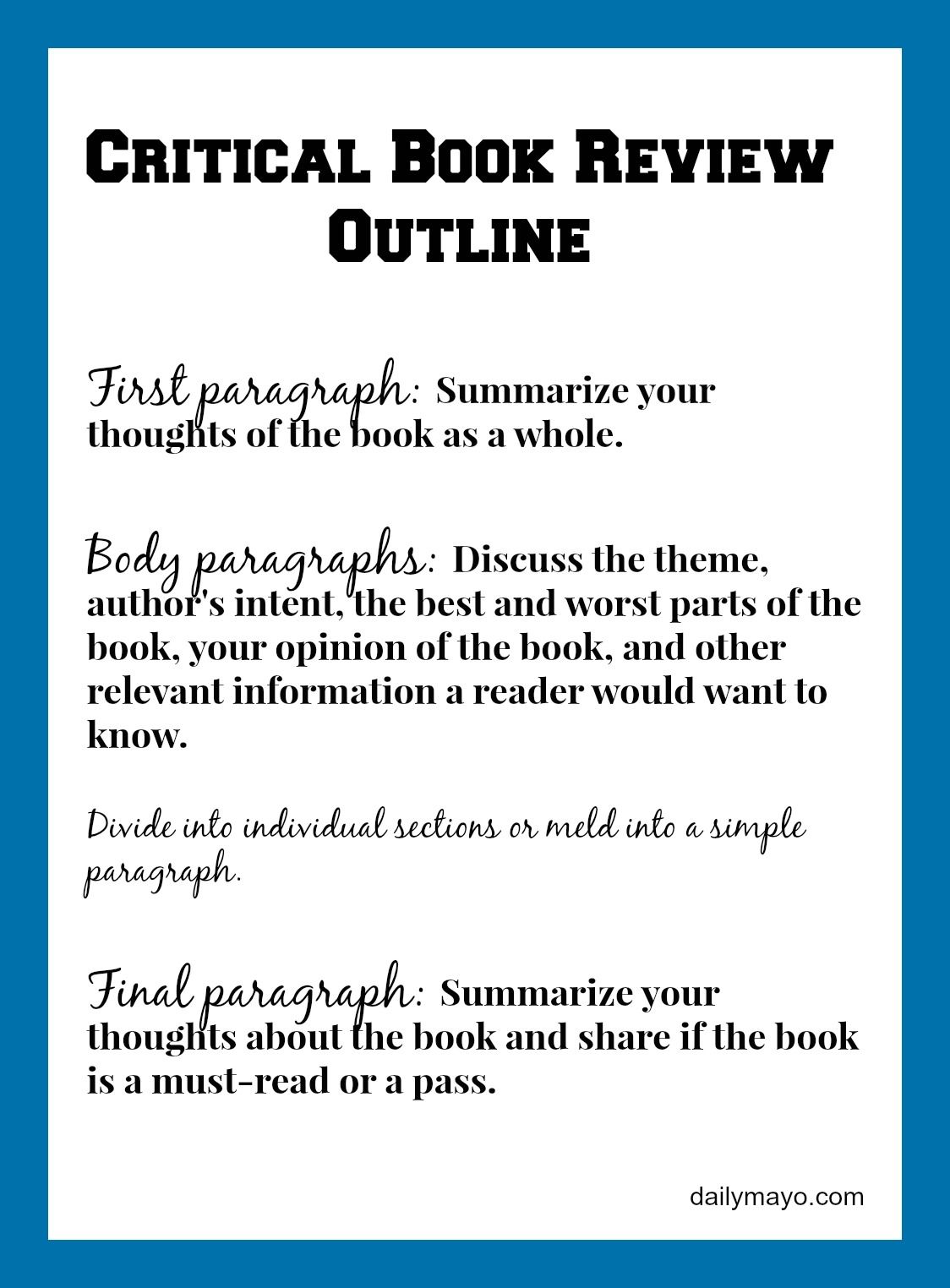A critical book review involves evaluating and analyzing a book in a thorough and thoughtful manner. Here are some steps to help you write a critical book review:
1. Read the book: Start by reading the book carefully and taking notes as you go along. Pay attention to the author's argument, the evidence they use to support it, and how well they structure their ideas.
2. Summarize the book: Begin your review by providing a brief summary of the book, including the main points the author makes and the overall thesis of the book.
3. Analyze the strengths and weaknesses: Evaluate the book's strengths and weaknesses. Consider the author's argument and how effectively they present and support it. Also, think about the book's writing style, organization, and whether it effectively engages with the topic.
4. Consider the author's perspective: Think about the author's background, biases, and any potential conflicts of interest that may have influenced their work. Consider how these factors may have shaped the book's content and argument.
5. Provide evidence: Back up your analysis with evidence from the book. Quote specific passages or examples to support your points and provide a deeper understanding of the book's content.
6. Compare the book to others: Consider how the book compares to other works on the same topic. Discuss how the book contributes to the existing literature and whether it offers a unique perspective or insight.
7. Offer a recommendation: Finally, conclude your review by offering a recommendation to potential readers. Would you recommend this book to others? Why or why not?
Remember, a critical book review should be objective, thoughtful, and well-supported with evidence from the text. It should provide a balanced assessment of the book's strengths and weaknesses and offer insights into its contributions to the field.

